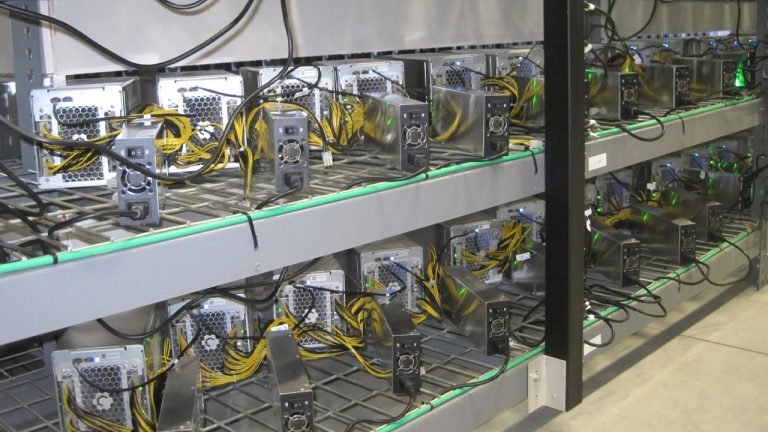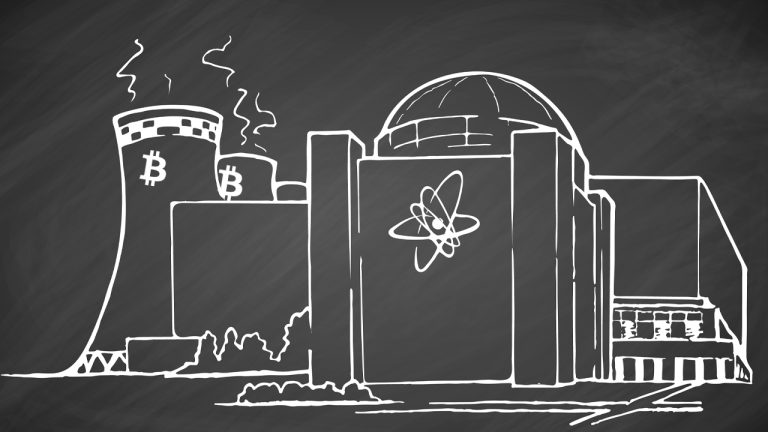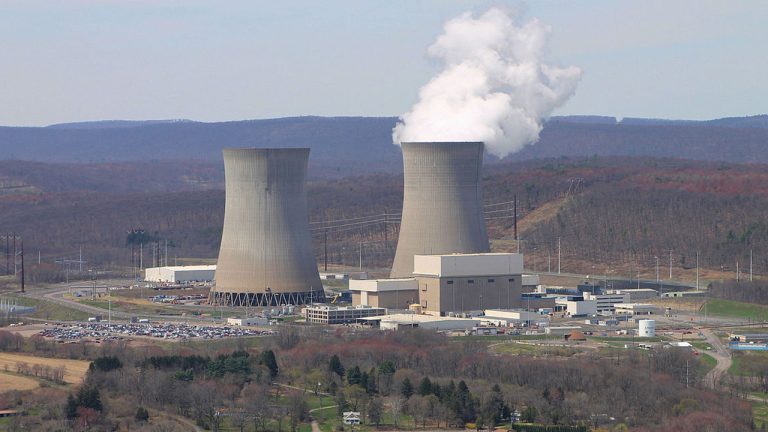 This week witnessed significant expansions in the bitcoin mining sector, with two leading firms unveiling substantial increases in their operational hashrate. Terawulf disclosed that its self-mining business has escalated to 7.6 exahash per second (EH/s) this month. Concurrently, Cleanspark announced an enhancement in its fleet-wide operating hashrate, surpassing 14 EH/s. Terawulf Hashrate Reaches 7.6 EH/s […]
This week witnessed significant expansions in the bitcoin mining sector, with two leading firms unveiling substantial increases in their operational hashrate. Terawulf disclosed that its self-mining business has escalated to 7.6 exahash per second (EH/s) this month. Concurrently, Cleanspark announced an enhancement in its fleet-wide operating hashrate, surpassing 14 EH/s. Terawulf Hashrate Reaches 7.6 EH/s […]

It adds to a prior agreement in which Riot bought 33,280 miners from MicroBT. The term sheet was also updated, allowing Riot to buy another 265,000 miners in the future.
Bitcoin miner Riot Platforms is buying 66,560 Bitcoin mining rigs from manufacturer MicroBT, in one of its largest orders of hash-rate in the firm’s history — ahead of the Bitcoin halving scheduled for April 2024.
The additional purchase agreement totaled $290.5 million, Riot stated in a Dec.
$Riot Exercises Purchase Option on 18 EH/s of Latest Generation Immersion Miners from MicroBT, and Secures Additional Purchase Options Providing a Path to Exceed 100 EH/s.
(@RiotPlatforms) December 4, 2023
- Riot places order for 18 EH/s of latest generation MicroBT Bitcoin miners, primarily consisting of the… pic.twitter.com/tEEudV6Z8n
The right-to-purchase option was included in Riot’s initial agreement with MicroBT when it agreed to buy 33,280 machines from MicroBT in June.
Riot’s CEO Jason Les said the purchase order is “the largest order of hash rate” in the company’s history and hopes the updated agreement will enable Riot’s mining performance to strengthen further.
Over 48,000 or 72% of the new machines will be MicroBT’s latest model, the M66S, which has a hash rate of 250 terahashes per second (TH/s), while the remaining machines will consist of the M66 (14,770) and M56S++ (3,720) models, Riot noted.
Altogether, the 66,560 miners will add 18 exahashes per second (EH/s) to Riot’s operations.


U.S. miner TeraWulf expanded its Bitcoin mining capacity in 2023, resulting in 70% more BTC mined in in Q2.
Bitcoin (BTC) mining firm TeraWulf has seen a drastic increase in BTC rewards after increasing its mining capacity in the first half of 2023.
According to the company’s latest quarterly filing with the U.S. Securities and Exchange Commission, TeraWulf mined a total of 1441 BTC through the first half of the year. 508 BTC were mined in Q1, while the firm added another 375 self-mined BTC to its balance sheet in Q2.
The increase in hashrate and mined BTC also led to an uptick in quarterly revenue for the company, up from $11.5 million to $15.5 million in Q2. The company pointed to their increased hashrate and the recovering market value of Bitcoin as primary reasons for its improved quarterly financials.
Related: TeraWulf goes nuclear: 8,000 rigs spool up in Nautilus mining facility
The firm now has over 50,000 new generation Bitcoin miners which it operates across its Lake Mariner site in New York and its Pennsylvania nuclear-powered Nautilus operation. TeraWulf’s operational hash rate sits at 5.5 EH/s while it has 160 MW of capacity for miners at the two sites.

The company also confirmed that it plans to expand its operation at Lake Mariner by another 43 MW by the end of 2023. The new building in New York is set to host 18,500 new generation S19j XP miners from Chinese manufacturer Bitmain.
TeraWulf estimates that its additional capacity at Lake Mariner will increase its self-mining hashrate by a further 58% from 5.0 EH6 to 7.9 EH/s.
Meanwhile Hut8 announced that it had seen a decrease in hashrate and self-mined Bitcoin in Q2 of 2023 as reflected in its mid-year results. The company mined 399 BTC in Q2, noting a 58% decrease compared to Q2 2022.
Hut8 put the drop in mined BTC down to three factors, which including the overall increase in Bitcoin mining difficulty, the suspension of operations at the firm's North Bay Facility and electrical issues that are ongoing at its Drumheller site.
Related: Bitcoin hash rate spikes as analysts say miners coming back online
Hut8 is also diversifying the use of its infrastructure away from solely mining Bitcoin. It’s high performance computing operation continues to generate an average of $4 million per quarter, while this number is expected to grow once its five year deal as an computing infrastructure provider to Interior Health begins towards the end of 2023.
Hut8 added that its Drumheller site had been hamstrung by high energy input levels that had led to some of its mining equipment to fail. The firm said 20% of its installed hash rate had been affected as a result.
Hut8 self-mined Bitcoin balance sits at 9,136 BTC, currently valued at $368.7 million. The company sold 396 of the 399 BTC it mined through Q2, resulting in $14.7 million in revenue. Hut8 expects to increase its hash rate capacity once a planned merger with USBTC is complete.
Magazine: Deposit risk: What do crypto exchanges really do with your money?
 Bitcoin mining company Terawulf has announced the full deployment of its 50-megawatt (MW) stake in the nuclear-powered Nautilus Cryptomine facility. The behind-the-meter bitcoin mining facility is powered by 100% nuclear power and benefits from a fixed power cost of $0.02 per kilowatt-hour (kWh), according to the company. Terawulf Fires up 50 MW Zero-Carbon Bitcoin Mining; […]
Bitcoin mining company Terawulf has announced the full deployment of its 50-megawatt (MW) stake in the nuclear-powered Nautilus Cryptomine facility. The behind-the-meter bitcoin mining facility is powered by 100% nuclear power and benefits from a fixed power cost of $0.02 per kilowatt-hour (kWh), according to the company. Terawulf Fires up 50 MW Zero-Carbon Bitcoin Mining; […]
Analysts are speculating that the Bitcoin hash rate has seen a significant spike recently as miners come back online to reap the rewards of the BTC price hike.
Bitcoin's (BTC) hash rate spiked to all-time highs of 398 exahash on March 23, and analysts have been speculating miners are starting to turn their rigs back on as the Bitcoin price rises.
According to data aggregator YCharts the Bitcoin network hash rate has dropped to 344.63 as of March 27, an increase from 335.32 on March 26 but it is still up from 178.77 one year ago.
In a March 26 post, Sam Wouters, a research analyst at Bitcoin (BTC) financial service provider River Financial, speculated the spike in hash rate is connected to unused mining inventory coming online, new facilities going live, and entrepreneurs finding cheap sources of mining.
Bitcoin's hashrate touched 400 Exahash. At the current growth rate in 2023, we'd reach a Zettahash by the end of 2025.
— Sam Wouters (@SDWouters) March 27, 2023
I'm getting questions and concerns from people.
Where is the growth coming from? Is it nation-states? Secret mining operations? Did someone find some exploit? pic.twitter.com/MMWfgPbqty
“While Bitcoin's price was so low and as much inventory as possible was brought online last year, at some point, maximum capacity of what the network could handle was reached," he said.
“Now that the price has been rising again and some time has passed, more of this inventory has been able to go online,” Wouters added.
In addition, Wouters says that Hydro models are starting to get into the market, and they have "250+ TH/s per machine, which adds tremendous hash rate."
A March 20 analysis from investment banking company Stifel shared a similar sentiment, speculating that the recent spike could be connected to miners bringing hardware back online.
"We anticipate overall network hash rate will continue to climb higher as a result of attractively priced hardware being bought up by well-capitalized miners."
Speaking to Cointelegraph, Nazar Khan from Bitcoin mining company TeraWulf, explained the company is currently maximizing the hash rate of all its rigs and has recently brought more online at its new Nautilus Cryptomine facility.
"Wulf has the opportunity to add 80 MW of capacity at LMD and 50 MW at Nautilus. The recent price movement is an indication of the long-term value of the ability to expand at low-costt energy sites,” Khan said.
Great start to the morning at the #NuclearPowered #Nautilus facility ⛏ Kicking off the week clean and green pic.twitter.com/XY9XFeUloF
— TeraWulf (@TeraWulfInc) March 20, 2023
According to Khan, while some have speculated the lower prices forced miners to shut down their rigs and wait for the BTC price to improve, TeraWulf was able to continue ming bitcoin at lower price levels because of their lost cost from “efficient mining fleets."
Related: Crypto miner explains how Bitcoin mining stabilizes grids
However, regardless of the reason for the spike, Khan says TeraWulf is not expecting the network hash rate to continue to increase through the first half of the year irrespective of the BTC price.
"There is a lag between when investment decisions are made and that capacity comes online," Khan explained.
Magazine: Best and worst countries for crypto taxes — plus crypto tax tips

Bitcoin mining company TeraWulf has fired up a new “behind the meter” mining facility powered by 100% nuclear power in Pennsylvania.
United States-based Bitcoin mining company TeraWulf has fired up a new crypto mining facility in Pennsylvania — solely running on nuclear power generated on-site.
In Mar. 6 statement, TeraWulf said the Nautilus Cryptomine facility is its first “behind the meter” Bitcoin (BTC) mining facility, which refers to using energy directly at the generation site without traveling through the grid.
It's official...
— TeraWulf (@TeraWulfInc) March 6, 2023
The first nuclear-powered mining facility in the U.S. is hashing!!! $WULF https://t.co/tLndh2bKOz@BitcoinMagazine @BTCTN @keremkaradagcom @crypto @decryptmedia @benzingacrypto @BTC_Archive
The Nautilus Cryptomine directly sources carbon-free baseload power from the 2.5 gigawatt (GW) Susquehanna nuclear generation station on site.
Paul Prager, Chairman and CEO of TeraWulf claims the Nautilus mining facility now has "arguably the lowest cost power in the sector, just $0.02/kWh for a term of five years."
The company also revealed they have now brought online nearly 8,000 mining rigs representing computing power, or hash rate, of 1.0 exahashes per second (EH/s), with plans for another 8,000 miners by May, increasing the hash rate to 1.9 EH/s.
TeraWulf has a 50 megawatt (MW) share in phase one of the new facility, a joint venture with Cumulus Coin, but can add an additional 50 MW of BTC mining capacity in future phases.
According to TeraWulf's website, the Nautilus Cryptomine is expected to reach 300 MW when complete and will be among the largest mines in North America.
First announced back in August, 2021, the Nautilus Cryptomine facility is the result of a partnership between TeraWulf's nuclear mining facility subsidiary and power generation and infrastructure company Talen Energy Corporation.
Phase 1 of the joint venture included the 180-MW “Nautilus Cryptomine” built on Talen’s digital infrastructure campus adjacent to its nuclear power generation station.
TeraWulf generates domestically produced BTC powered by nuclear, hydro, and solar energy with a goal of utilizing 100% zero-carbon energy.
Related: US legislators renew call for EPA investigation of crypto mining emissions data
Concerns around the potential environmental impacts of BTC mining have ramped up in the last few years with heated debates around the environmental and energy impact surrounding the mining of crypto assets.
Last year, New York signed a two-year moratorium banning any new fossil-fuel-powered Bitcoin miners from setting up shop within the state.
While in October of 2022, Europe made moves toward regulatory action on crypto’s alleged environmental impact as well.
 Terawulf, a bitcoin mining operation, has announced that it has energized the first nuclear-powered bitcoin mining facility in the United States at the company’s Nautilus Facility in Pennsylvania. According to the company, approximately 1 exahash per second (EH/s) or close to 8,000 application-specific integrated circuit (ASIC) bitcoin miners are now online, and another 8,000 mining […]
Terawulf, a bitcoin mining operation, has announced that it has energized the first nuclear-powered bitcoin mining facility in the United States at the company’s Nautilus Facility in Pennsylvania. According to the company, approximately 1 exahash per second (EH/s) or close to 8,000 application-specific integrated circuit (ASIC) bitcoin miners are now online, and another 8,000 mining […] On Monday, Dec. 12, 2022, the Maryland-based bitcoin mining company Terawulf announced that the firm has raised $10 million in capital to pay down debts. The firm also said that it restructured a deal with Bitmain which will enable the company’s self-mining capacity to expand and fully leverage the 160 megawatts of Terawulf’s available mining […]
On Monday, Dec. 12, 2022, the Maryland-based bitcoin mining company Terawulf announced that the firm has raised $10 million in capital to pay down debts. The firm also said that it restructured a deal with Bitmain which will enable the company’s self-mining capacity to expand and fully leverage the 160 megawatts of Terawulf’s available mining […] The world’s largest producer of application-specific integrated circuit (ASIC) bitcoin miners, Bitmain Technologies, has revealed the company is offering a discount on Antminer S19 Pro mining rigs. The 100 terahash per second (TH/s) machine is selling for $19 per terahash or $1,900 per unit. The Antminer mining rigs are 80% cheaper than they were five […]
The world’s largest producer of application-specific integrated circuit (ASIC) bitcoin miners, Bitmain Technologies, has revealed the company is offering a discount on Antminer S19 Pro mining rigs. The 100 terahash per second (TH/s) machine is selling for $19 per terahash or $1,900 per unit. The Antminer mining rigs are 80% cheaper than they were five […] Following the publicly-listed mining operation Terawulf’s announcement that the firm’s Lake Mariner mining data center is up and running with 30 megawatts (MW) of capacity, 11 days later, the company has revealed the operation of nearly 12,000 miners at the facility in New York. Between the owned and hosted hashing capacity at Lake Mariner, Terawulf […]
Following the publicly-listed mining operation Terawulf’s announcement that the firm’s Lake Mariner mining data center is up and running with 30 megawatts (MW) of capacity, 11 days later, the company has revealed the operation of nearly 12,000 miners at the facility in New York. Between the owned and hosted hashing capacity at Lake Mariner, Terawulf […]